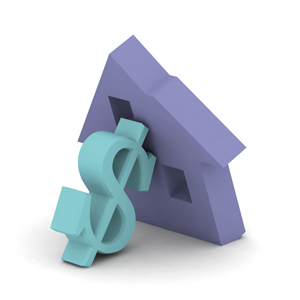One of the biggest purchases you will make over your lifetime is the purchase of a house. Some will argue that purchasing a house is an investment. But, if it’s your primary house that you intend to live in, it’s not an investment. Sorry, it just isn’t. If you intend to rent the house out, that’s another story, but your primary residence is just a purchase. Even so, it’s a very large purchase. It makes sense, then, that we will want to find as many ways as we can to save money on the purchase of our home.
Saving before a home purchase
I’ll discuss how to save on your home once you’ve already purchased it a bit further down, but you’ll find yourself a good bit ahead of the game if you start thinking about how you can save money on your home purchase before you make the purchase.
- Improve your credit, improve your rate – The rate at which you borrow the money to buy your home is a big deal. A half a point on the rate can translate to thousands of dollars more in interest over the life of the loan. The best way to guarantee that you get the best rate available is to have excellent credit. Depending on how far you improve your credit, you could shave as much as two or three points off the interest rate of the loan. Not only will that reduce the payment you’ll make, but it will reduce the amortized amount of the loan by tens of thousands. Want to know what makes an impact on your credit score? Read the Beating Broke Guide to Your Credit.
- Compare home loans – I mentioned how this will likely be one of the biggest purchases of your life, right? Well, why on Earth wouldn’t you compare the loans available to make sure you were getting the best deal? You’ve got to compare those loans! Different lenders will have different policies, rates, and even lengths of loans. Not only will failing to compare the home loans available cost you money, but it could cause you a lot of stress over the life of the loan.
- 20% down or more – If you’ve got the savings for it, put at least 20% down on the home. Why? Well, it reduces the amount of the loan, for one. The less you have to borrow the better, right? More importantly, 80% is the normal cutoff for when a lender will require you to add Private Mortgage Insurance to the loan. It can add a hefty bit to the monthly payment, and it doesn’t go anywhere but into the insurer’s pocket.
Saving after a home purchase
- Refinance – This may not be for all of you looking to save, but with the current rates, it bears looking into for some of you. Refinancing a higher interest rate mortgage into a lower interest rate loan can save you thousands over the life of the loan. Refinancing into a shorter term mortgage can also save you thousands, but beware that the mortgage payment is likely to be higher due to the shorter amortization period.
- Make extra payments – If refinancing isn’t in the cards for you, make sure that your lender will accept extra payments to principle and then start making them. Reducing the principle will reduce the interest, and by simply making an extra payment a year, you can shave years off of your mortgage.
Whether you’re looking at buying a home, or already have, saving money on the biggest purchase of your life is always worth looking into. A few minutes on the phone with your lender can sometimes save you more than you would cutting lattes every day. With the higher number of defaulting mortgages recently, many banks are much more willing to help you save money on your payments and pay the loan off early. They like getting their money back too!
What other ways have you used to save money on your mortgage? What’s the most extreme example that you’ve heard of?

I started this blog to share what I know and what I was learning about personal finance. Along the way I’ve met and found many blogging friends. Please feel free to connect with me on the Beating Broke accounts: Twitter and Facebook.
You can also connect with me personally at Novelnaut, Thatedeguy, Shane Ede, and my personal Twitter.


 Your primary home is not an investment in the normal sense of the word. Dictionary.com
Your primary home is not an investment in the normal sense of the word. Dictionary.com